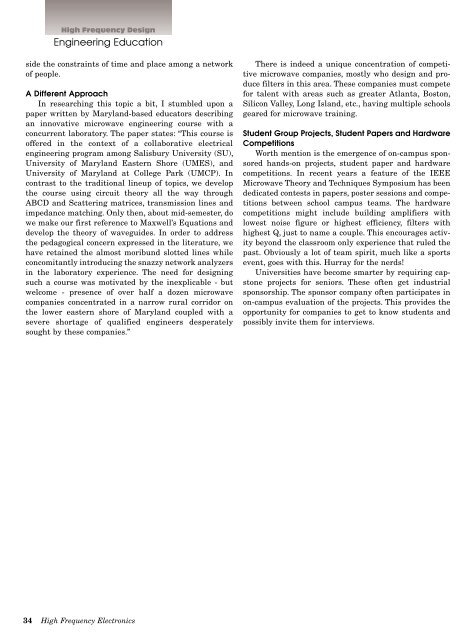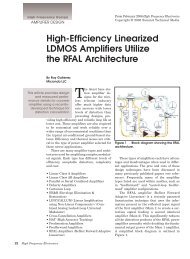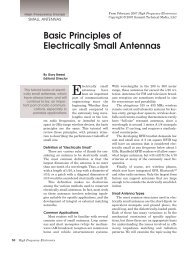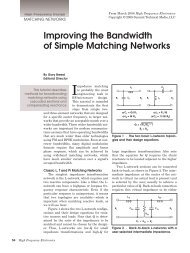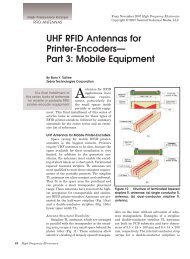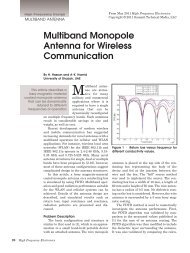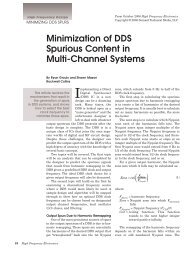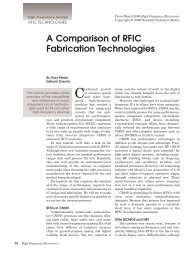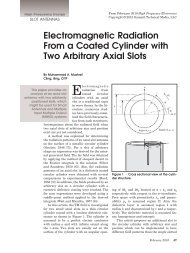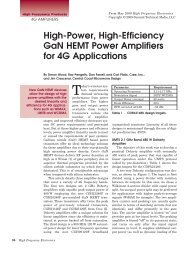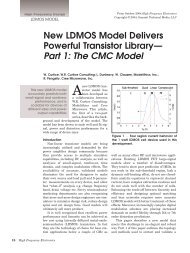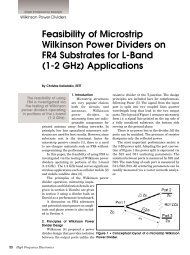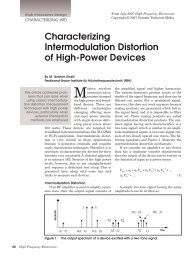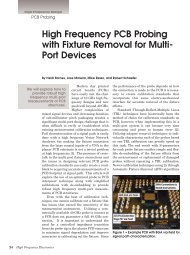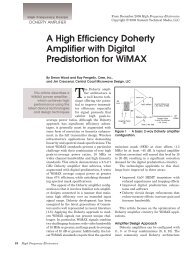Microwave Engineering Education - High Frequency Electronics
Microwave Engineering Education - High Frequency Electronics
Microwave Engineering Education - High Frequency Electronics
Create successful ePaper yourself
Turn your PDF publications into a flip-book with our unique Google optimized e-Paper software.
<strong>High</strong> <strong>Frequency</strong> Design<br />
<strong>Engineering</strong> <strong>Education</strong><br />
side the constraints of time and place among a network<br />
of people.<br />
A Different Approach<br />
In researching this topic a bit, I stumbled upon a<br />
paper written by Maryland-based educators describing<br />
an innovative microwave engineering course with a<br />
concurrent laboratory. The paper states: “This course is<br />
offered in the context of a collaborative electrical<br />
engineering program among Salisbury University (SU),<br />
University of Maryland Eastern Shore (UMES), and<br />
University of Maryland at College Park (UMCP). In<br />
contrast to the traditional lineup of topics, we develop<br />
the course using circuit theory all the way through<br />
ABCD and Scattering matrices, transmission lines and<br />
impedance matching. Only then, about mid-semester, do<br />
we make our first reference to Maxwell’s Equations and<br />
develop the theory of waveguides. In order to address<br />
the pedagogical concern expressed in the literature, we<br />
have retained the almost moribund slotted lines while<br />
concomitantly introducing the snazzy network analyzers<br />
in the laboratory experience. The need for designing<br />
such a course was motivated by the inexplicable - but<br />
welcome - presence of over half a dozen microwave<br />
companies concentrated in a narrow rural corridor on<br />
the lower eastern shore of Maryland coupled with a<br />
severe shortage of qualified engineers desperately<br />
sought by these companies.”<br />
There is indeed a unique concentration of competitive<br />
microwave companies, mostly who design and produce<br />
filters in this area. These companies must compete<br />
for talent with areas such as greater Atlanta, Boston,<br />
Silicon Valley, Long Island, etc., having multiple schools<br />
geared for microwave training.<br />
Student Group Projects, Student Papers and Hardware<br />
Competitions<br />
Worth mention is the emergence of on-campus sponsored<br />
hands-on projects, student paper and hardware<br />
competitions. In recent years a feature of the IEEE<br />
<strong>Microwave</strong> Theory and Techniques Symposium has been<br />
dedicated contests in papers, poster sessions and competitions<br />
between school campus teams. The hardware<br />
competitions might include building amplifiers with<br />
lowest noise figure or highest efficiency, filters with<br />
highest Q, just to name a couple. This encourages activity<br />
beyond the classroom only experience that ruled the<br />
past. Obviously a lot of team spirit, much like a sports<br />
event, goes with this. Hurray for the nerds!<br />
Universities have become smarter by requiring capstone<br />
projects for seniors. These often get industrial<br />
sponsorship. The sponsor company often participates in<br />
on-campus evaluation of the projects. This provides the<br />
opportunity for companies to get to know students and<br />
possibly invite them for interviews.<br />
34 <strong>High</strong> <strong>Frequency</strong> <strong>Electronics</strong>


